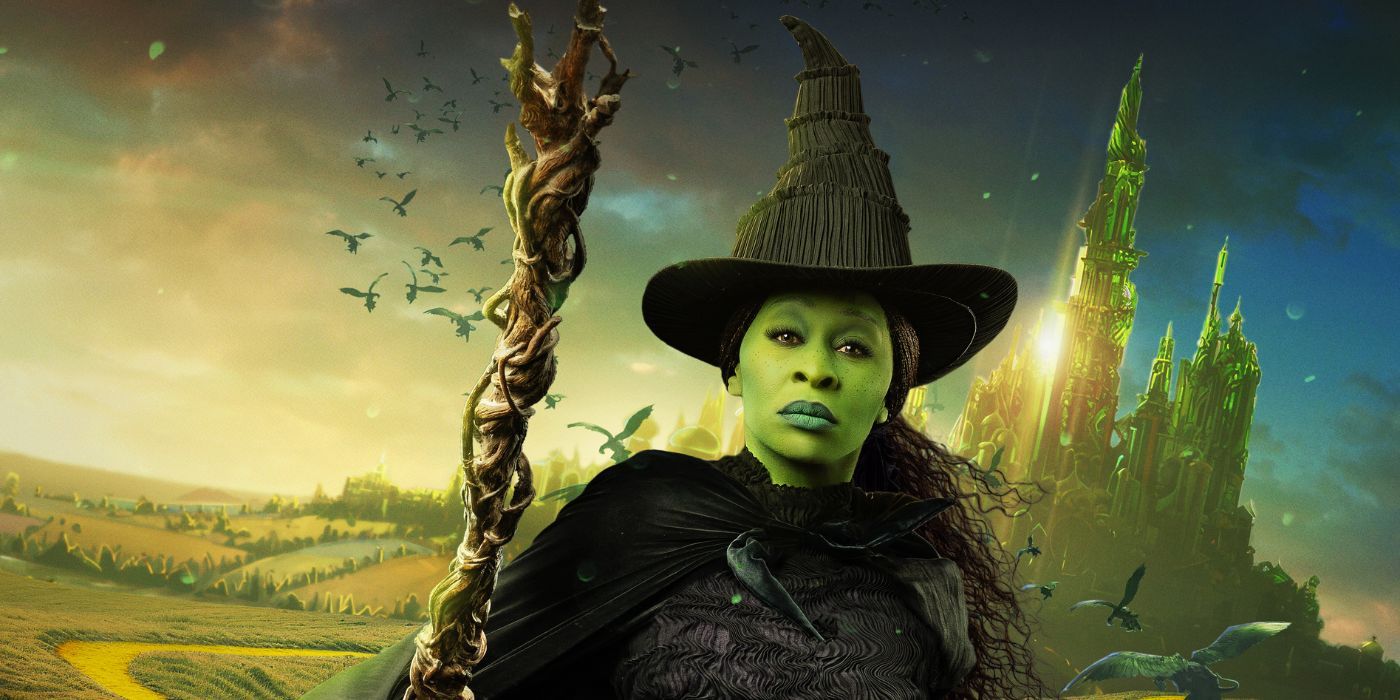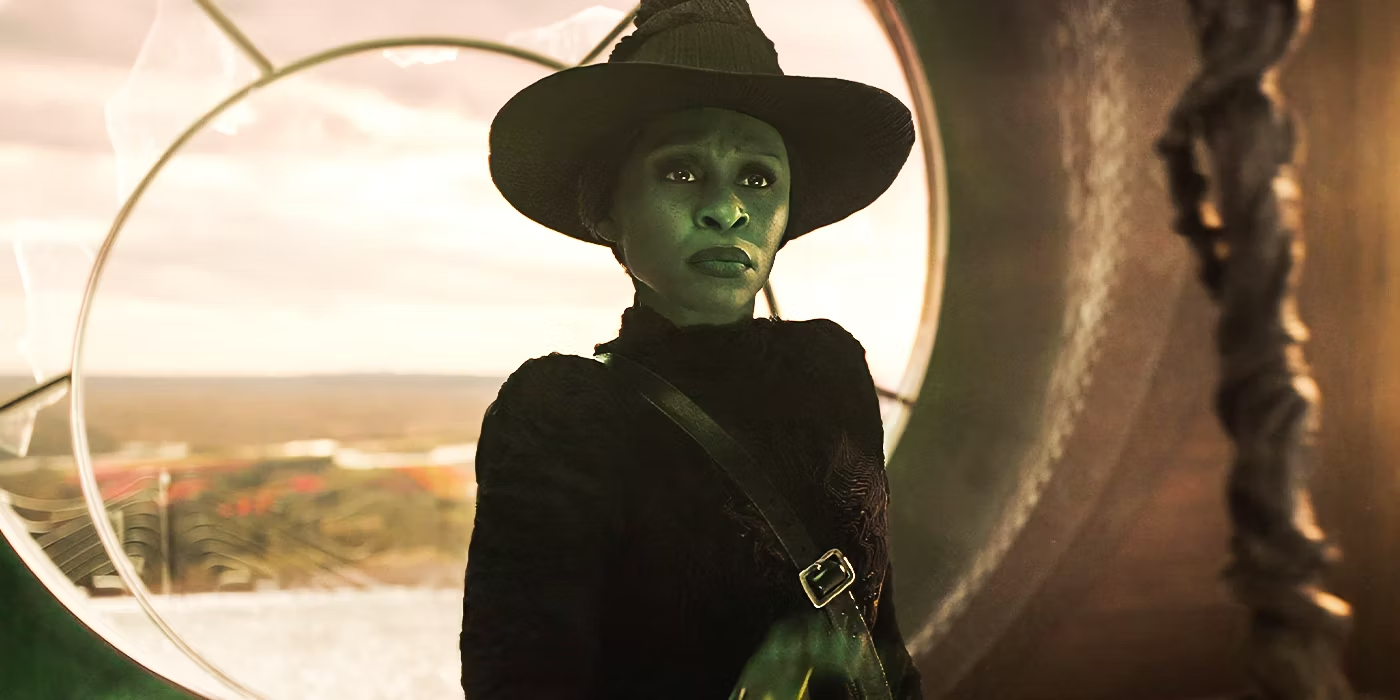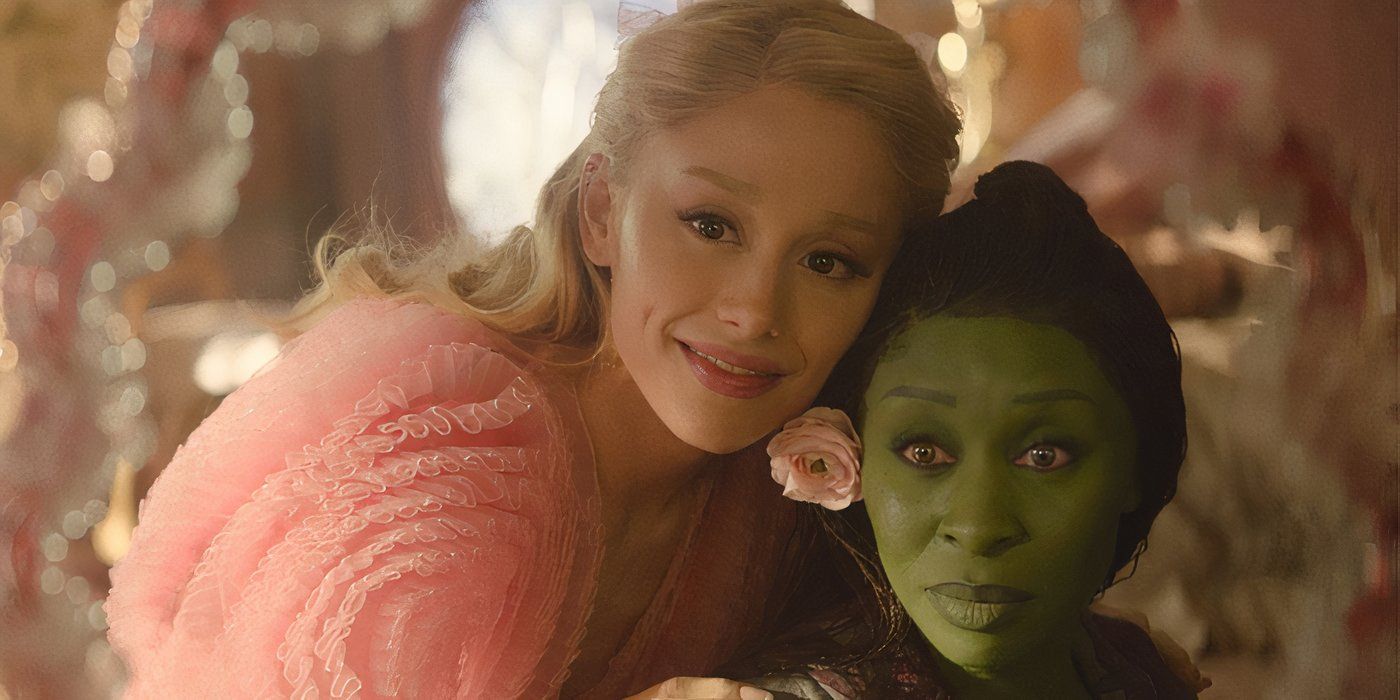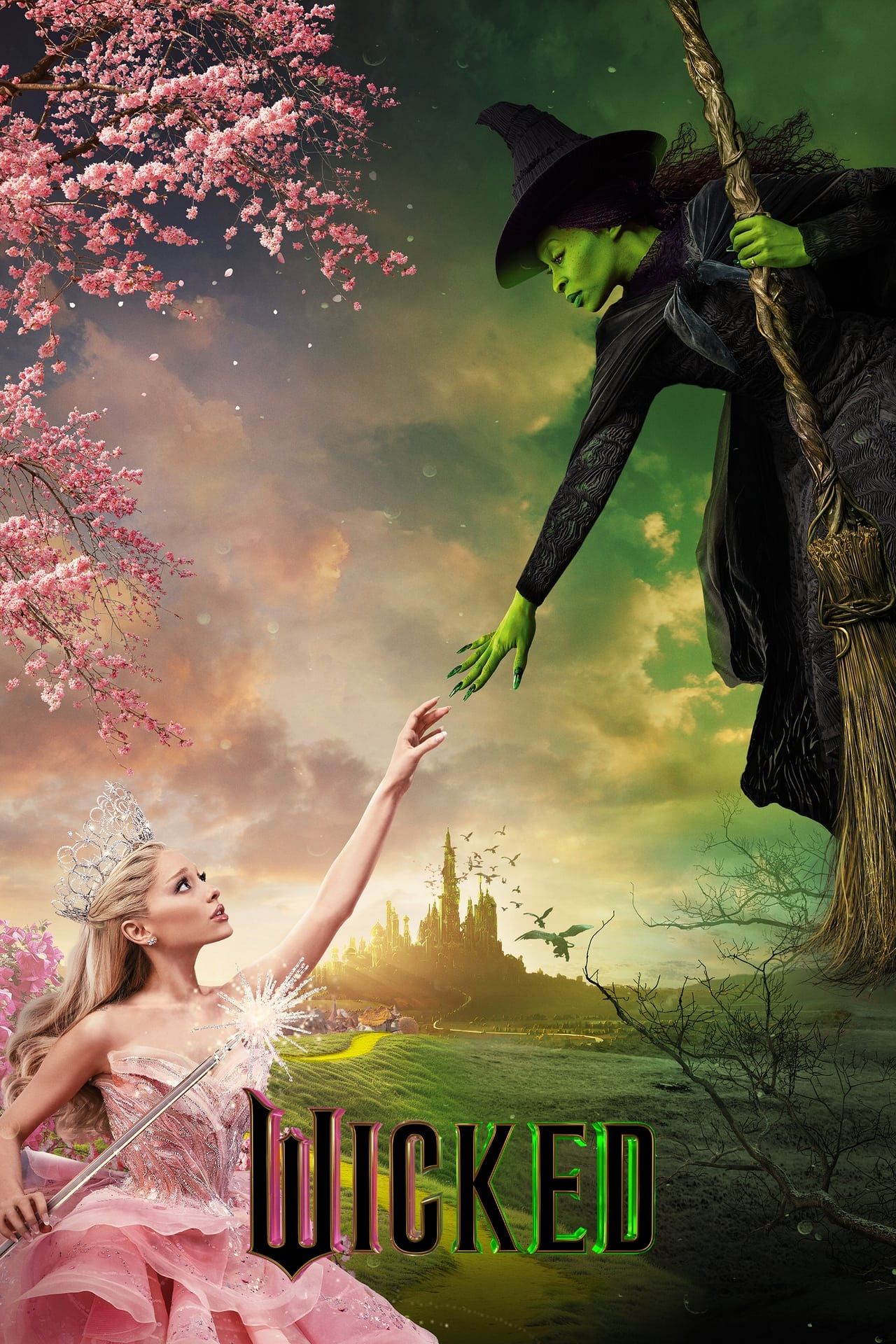Editor’s note: The below contains spoilers for Wicked.
Wicked is a love story. The emotional axis of this subversive tale is predicated upon turning the archetypal “wicked witch” and “good witch” from The Wizard of Oz into former friends. Because it’s a musical, Wicked’s songs do most of the heavy lifting in the character development department. Yet one of the best scenes in director Jon M. Chu‘s film adaptation — a crucial turning point, in fact — unfolds in silence. When Galinda (Ariana Grande) dances with Elphaba (Cynthia Erivo) in the Ozdust Ballroom, words aren’t necessary, especially for two women who have been exchanging verbal barbs; their exquisitely tender actions both cross an emotional chasm and kickstart the core of their arcs.
‘Wicked’s Ozdust Ballroom Dance Foreshadows Elphaba’s Self-Actualization
Even though Wicked loosely adapts the Gregory Maguire novel, many allegorical themes remain the same. A fascist government oppresses marginalized identities; the general public ask no questions about said villainization; and individuals, by and large, can’t be simplified into the easily digestible “good versus evil” binary. Wicked the musical, in particular, highlights the intersection between the power of female friendships and their thorny complexity — the latter often originating when the powers that be force would-be allies into competitive situations.
It’s because of this manifold context that the Ozdust Ballroom scene hits as hard as it does. This moment distills a lifetime of scorn and exclusion into a heart-stopping choice for Elphaba, bringing her to a status of active dissent as well as a refusal to surrender space any longer. Instead, she commands it and owns her differences by being true to herself. While always self-assured, clear-eyed, and unapologetic, Elphaba literally dancing to her own tune equates to her publicly liberating herself, an act foreshadowing her holding true to her defining morals, rejecting conformity, and claiming complete self-actualization during “Defying Gravity.”
Before the Wizard (Jeff Goldblum) and Madame Morrible (Michelle Yeoh) meet her resistance with repudiation, however, Elphaba experiences a single moment of unconditional acceptance in the Ozdust Ballroom. When Galinda starts repeating Elphaba’s dance back to her, the moment is ripe for Galinda to drop another cruel punchline. But this isn’t an insult or even an attention-seizing move on Galinda’s part. Once Elphaba recognizes Galinda’s sincerity, she lets the other woman delicately touch her hands. From there, Elphaba leads the choreography and Galinda follows in such wordless unison, it’s like these two have moved in sync for their entire lives.

Related
Here’s Why It Took So Long to Make the ‘Wicked’ Movie
Cats, directors, composers… oh my!
When this unity moves Elphaba to tears — ones born of emotions too innumerable to name, but which include the shattering revelation of being not just seen, but valued for the first time — Galinda cradles them. Crying requires a shattering vulnerability, and Erivo ensures that Elphaba’s pain, strength, and fearless self-acceptance exist within the same space. Then, as the ostracized young woman experiences a modicum of healing and communal joy, she returns Galinda’s grin. Words do wonders, but apologetic reformation requires legitimate action — a repentance Galinda further demonstrates by seizing Elphaba in a hug that’s the equivalent of two souls joining. Both women show their authentic selves in a public sphere, but they only have eyes for each other.
Galinda Shows Real Compassion During the Ozdust Ballroom
For Galinda, deciding to confront and unpack her discomfort, guilt, and culpability for Elphaba’s group bullying marks a vital transformation. The “Popular” number shows that Galinda is aware of the ways society expects her to comply with its norms, specifically its most palatable idea of “goodness.” Likewise, Galinda’s determined to be perceived that way: i.e., affluent, beautiful, entitled, and preternaturally gifted. But trying to simultaneously play by the system’s rules and exploit them to her advantage means Galinda either ignores the marginalized or opts into political awareness only when it’s superficially convenient.
To quote the late Stephen Sondheim‘s Into the Woods (another revisionist, witchy musical), “Nice is different than good.” Unlike Elphaba, Galinda doesn’t seem able to internally validate herself; she craves external approval. Madame Morrible ruthlessly denying her dreams tears her insecurities apart like a dissection. Once Elphaba calls out Galinda’s performative allyship and gains what Galinda most wants, the latter’s jealousy funnels itself into a jealous, vindictive vendetta.
It’s only after Elphaba, who owes Galinda nothing, gives her rival her heart’s desire, that Galinda realizes she’s been not just selfish, but wicked. Between the two, Elphaba embodies actual goodness. True generosity isn’t Galinda offering to “cure” Elphaba’s green skin, but embracing Elphaba exactly as she is. Dancing with Elphaba in the Ozdust doesn’t give Galinda any social capital; she sacrifices her comfort and stops centering her self-preservationist instincts in favor of recognition and support. This act isn’t courageous, but it is growth — Galinda learns empathetic accountability and the baby-step actions such advocacy demands.
Elphaba and Glinda’s Dance Is the Heart of ‘Wicked’
Unfortunately, when push comes to shove, Elphaba’s resolutions endure, whereas Galinda again chooses obedience over risking her safety in pursuit of the morally correct choice. But before then, their soulmate friendship is as true as breathing. Cementing their bond via dance isn’t just plot mechanics to push us toward the tragic endgame — it’s Wicked laying its thematic heart bare, and the scene’s intimate focus facilitates Erivo and Grande as that heart’s custodians.
Wicked is now playing in theaters across the U.S.
Buy Tickets



